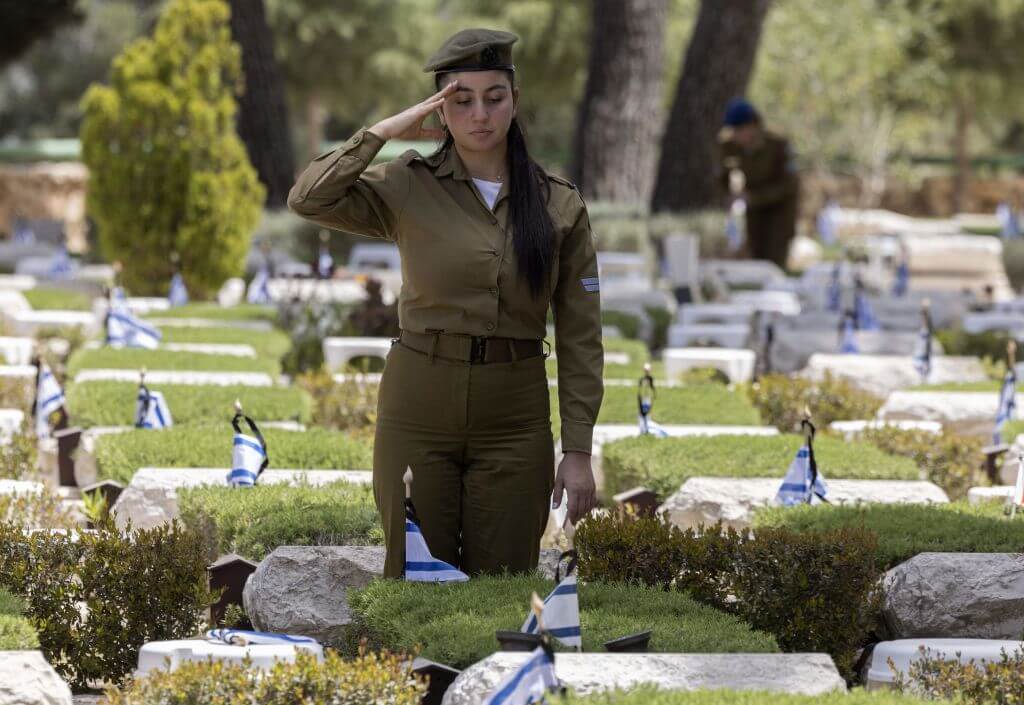For Israelis in the diaspora, new ways to honor fallen soldiers on Yom HaZikaron

An Israeli soldier prays her respect at the Mount Herzl military cemetery in Jerusalem on May 2, 2022 Photo by MENAHEM KAHANA/AFP via Getty Images
For those living in the diaspora, it can be hard to observe Yom HaZikaron, Israel’s annual memorial day for its 24,068 fallen soldiers, which begins on Tuesday evening. A new program aims to bring those living outside Israel the chance to be a part of the commemorations this year.
On Yom HaZikaron, people unite to remember solders lost in conflict, said Gusti Yehoshua-Braverman, head of the World Zionist Organization’s outreach efforts to Israelis abroad, in a statement. “With time, we have learned that Israelis abroad feel distant and detached from the special atmosphere that prevails on this day in Israel.”
To help bridge this gap, the group this year launched a project called “Their Heart Lives on With Us,” a program of concerts, memorial runs and bereavement groups — called “Talking Memories” — where Israelis abroad can share their remembrances of fallen soldiers.
The bereavement circles will take place in several countries, including the U.S., Japan, Germany, Canada and Romania. They will each bring together between 10 and 15 people, except for the one in Romania, where the brother of a fallen soldier, along with his parents — both Holocaust survivors – will address an audience of about 100.
Israelis abroad were also encouraged to tune into a Yom HaZakiron ceremony Tuesday night in Israel — Tuesday afternoon in the U.S. — via Facebook and YouTube. It featured musical performances by Israeli singer-songwriter Aviv Geffen and other Israeli stars, and was subtitled in English.
Yom HaZikaron, since 1979, has also honored Israelis killed in terrorists incidents. To date, 4,217 civilians have been killed in terrorist acts against Israel going back to 1881, according to Ori Schecter, the director-general of OneFamily, a Jerusalem-based nonprofit organization that assists families victimized by terrorism.
I hope you appreciated this article. Before you go, I’d like to ask you to please support the Forward’s award-winning, nonprofit journalism during this critical time.
Now more than ever, American Jews need independent news they can trust, with reporting driven by truth, not ideology. We serve you, not any ideological agenda.
At a time when other newsrooms are closing or cutting back, the Forward has removed its paywall and invested additional resources to report on the ground from Israel and around the U.S. on the impact of the war, rising antisemitism and the protests on college campuses.
Readers like you make it all possible. Support our work by becoming a Forward Member and connect with our journalism and your community.
Make a gift of any size and become a Forward member today. You’ll support our mission to tell the American Jewish story fully and fairly.
— Rachel Fishman Feddersen, Publisher and CEO
Join our mission to tell the Jewish story fully and fairly.